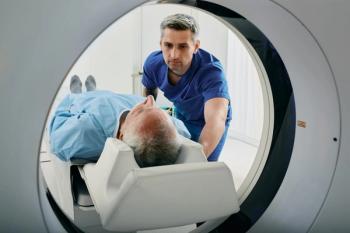
Some cardiologists cling to catheter angiography
Coronary CT angiography has proven to be a boon to radiologists and cardiologists in private practice. With a high negative predictive value, it can easily rule out coronary artery disease in patients with nondiagnostic electrocardiograms. For cardiologists in particular, CTA can help offset declining reimbursements associated with catheter procedures and nuclear medicine tests. But some cardiologists resist.
Coronary CT angiography has proven to be a boon to radiologists and cardiologists in private practice. With a high negative predictive value, it can easily rule out coronary artery disease in patients with nondiagnostic electrocardiograms. For cardiologists in particular, CTA can help offset declining reimbursements associated with catheter procedures and nuclear medicine tests. But some cardiologists resist.
"The CT coronary angiogram is demonstrating its usefulness as a noninvasive alternative to conventional catheter angiography that is capable of documenting both hard- and soft-plaque formations. With recent emphasis being placed on data surrounding the study of soft-plaque formation and its relationship to acute myocardial infarction, it seems CT angiography will become an integral tool in the prevention and treatment of coronary artery disease and acute myocardial infarction.
"Not every cardiologist is ready to roll over for coronary CTA, however. The invasive cardiologists want to know how accurate it is. Additionally, they are concerned it will take some of their income away. We see that. We tell them that cardiac CT will actually help to increase invasive procedures. Even hospitals are concerned about the potential loss of money from fewer catheter procedures. They are resistant to adopting CTA.
"Nationally, the statistics show that almost half of all cardiac cath procedures are negative, meaning they do not result in stenting or bypass surgery. If you can evaluate patients noninvasively, you're saving thousands of dollars, as well as diminishing real but low risks of mortality and morbidity."
-Dr. Steven M. Strobbe, executive physician and CEO of Florida Institute for Advanced Diagnostic Imaging in Port Richey
Newsletter
Stay at the forefront of radiology with the Diagnostic Imaging newsletter, delivering the latest news, clinical insights, and imaging advancements for today’s radiologists.














